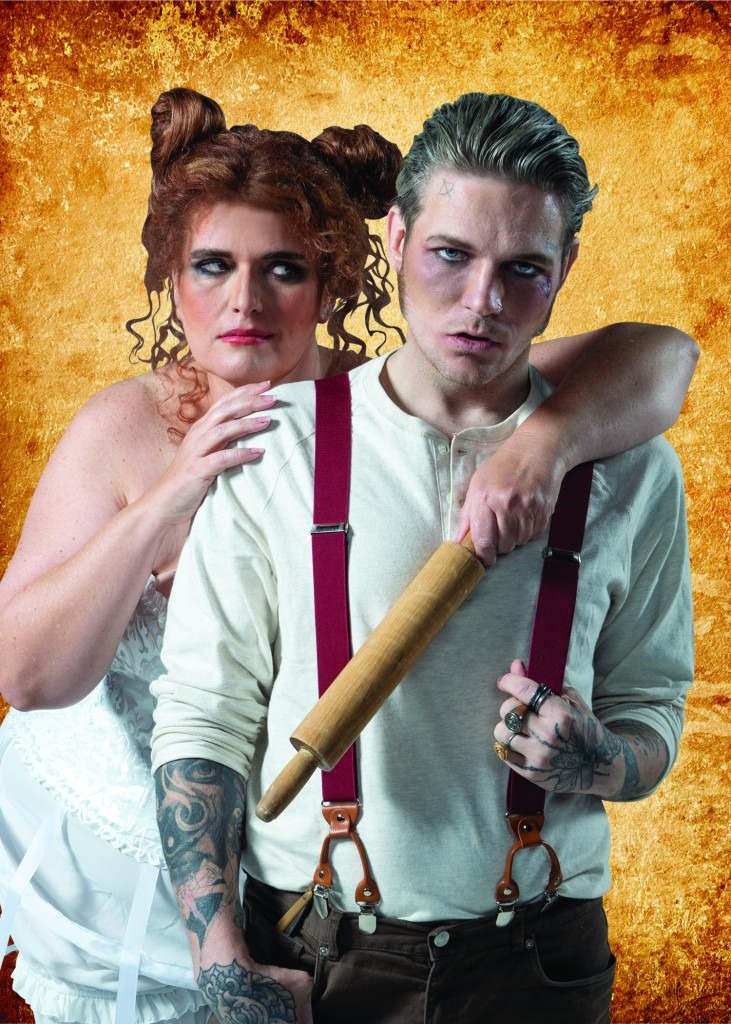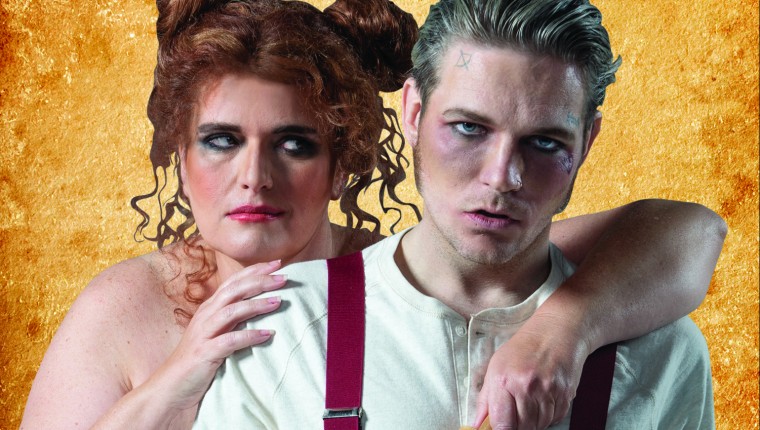April 21-23
Straz Center, Tampa
Details here
Let’s hope, for your own sake, that you like your opera on the rare side.
Not medium or well done, but red. Better yet, with blood splattered everywhere, oozing all over the stage. And don’t forget dessert − we suggest the meat pie with a nice chianti.
Welcome to the gruesome world of Sweeney Todd: The Demon Barber of Fleet Street,which bleeds more like a George Romeo movie than an opera by the late Stephen Sondheim.
But it is Sondheim, and he fooled us all when this grisly, multi-faceted musical thriller premiered on Broadway in 1979 and inspired director Tim Burton with a celebrated film years later. Now comes a new production by Opera Tampa, which is about to engulf you in, well, a deliciously distasteful load of fun.
How, you might ask, can such dark theater be so delightful?
“That’s the point,’’ says Robin Stamper, the company’s artistic director. “Sondheim wanted to freak out the audience − and mix in a lot of laughs.’’

Sondheim, who died in 2021, was a master in mixing words and music. Where he once teamed with others – think Leonard Bernstein and West Side Story – he evolved into a doyen of the American musical, a lyricist who composed his own scores. His hit list includes Company, Follies, A Little Night Music, Pacific Overtures and Sunday in the Park with George. The high points of his output rest alongside Irving Berlin, Cole Porter and Noël Coward.
“His musical language is as sophisticated as Bernstein and Carlisle Floyd,’’ Stamper adds. “There’s not a greater lyricist, and he had a masterful understanding of the stage.’’
In Sweeney Todd, the synthesis of words and music is at its peak, expressed with a wholeness and depth in a predominately symphonic score. The shifting motifs – much in the vein of Richard Wagner − bring a psychological realism to characters endeared through Sondheim’s lyric wit.
When you justify cannibalism because it can “save a lot of graves and do a lot of relatives a favor,’’ then the ensuing line “everybody shaves so there should be plenty of flavors’’ validates having a barber shop over a human smorgasbord.
On the surface, his lines sound simple and sometimes trite, the rhymes and rhythms teetering on the edge of a good fit. But a social critique percolates underneath, notes Jesse Green, chief theater critic of the New York Times, who last month reviewed a new Broadway production directed by Thomas Kail.
“Sweeney, seen as a byproduct of the Industrial Revolution, isn’t so much a villain as a victim,’’ he writes. “The greed of the overlord class, mimicked by the grasping Mrs. Lovett, is what makes mincemeat of the proletariat.’’
Vengeance fuels the story and the life of Benjamin Barker, an innocent man sentenced to 15 years in an Australian prison by the evil judge Turpin, who lusts after Barker’s wife and kidnaps his daughter, Johanna. Barker escapes, returns to London and changes his name to Sweeney Todd. He opens a barber shop, expecting the judge to one day come in for a “close shave.’’
Waiting for his moment, Todd becomes despondent over what he views as a wicked and hollow society, and vows to “de-populate’’ 19th-century London of its cretins.
“There’s a hole in the world, like a great black pit,’’ he laments, “and it’s filled with people, who are filled with shit, and the vermin of the world inhabit it, but not for long!’’
He goes on a murderous rampage, slitting the throats of unsuspecting customers and slipping their bodies to a basement bakery owned by the equally sordid Mrs. Lovett − who makes meat pies from the freshly ground flesh.
To lure Turpin, Sweeney sets up his daughter as bait, and the judge finally succumbs to the razor. He then murders a beggar woman who, unfortunately, happens to be his wife. Mrs. Lovett is next, and after dancing with Sweeney, winds up crispy in the oven. In a final act of revenge, her son, Tobias, turns the barber’s blade on Sweeney.
Countering so much gore is a string of lovely songs, such as A Little Priest and Worst Pies in London. “Most of the greatest musical masterpieces provide a healthy amount of contrast,’’ Stamper says.
“Of course, the greater the contrast, the more effective the extremes. Some of the most macabre moments dramatically occur while the music is at its most beautiful.’’
So, you wonder – does all this violence and beauty translate into a musical or an opera, or does Sweeney Todd have a foot in both worlds? Does it survive as a theatrical hybrid? Does it matter?
“We aren’t trying to make any point other than to give our audience a highly dramatic masterpiece,’’ Stamper says of Opera Tampa’s original staging, “and one we haven’t produced before.’’
Opera Tampa’s Sweeney Todd
Friday and Saturday at 8 pm, Sunday at 2 pm
Straz Center for the Performing Arts
1010 N. MacInnes Place, Tampa
You can find ticket information here




